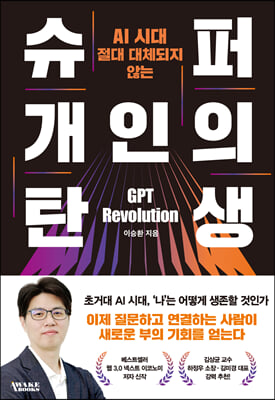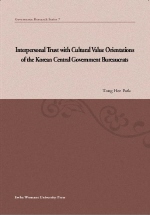

- ���� ������ ź�� : AI �ô� ���� ��ü���� �ʴ�
�̽�ȯ �� | �����ũ�Ͻ�


- ����縦 �ٲ� ȭ�� �̾߱� 2 : �ں����Ǻ��� �����...
���̾� ���繫 ��/����ȯ �� | �������������


- �ݵ�� �س� �Ŷ�� ����
������ �� | ����(Mindset)


Governance Research Series 7
Interpersonal Trust with Cultural Value Orientations of the Korean Central Government Bureaucrats
A Moral familism has been indicated as an important source of favoritism and nepotism and a prototypical cultural value of collectivism. While Putnum or Coleman emphasized the importance of family and its socialization for the development of trust in the society, Fukuyama warned East Asian countries, including Korea, Taiwan, and China about the bad effects of familism on interpersonal trust as a social capital, affecting economic growth in the 21st century��s knowledge-information age. This seems to reflect a cultural prejudice; that is, Western industrialized countries prefer individualism to collectivism. Note that Woolcock pointed out that the same countries Fukuyama mentioned as low trust countries, were countries where strong cohesiveness within the group due to high collectivism coexisted with autonomous and lively civic engagement based on individualism.
Viewing the positive influence of horizontal collectivism and affectionate familism on interpersonal trust and the negative influence of hierarchical order on trusting others, the past argument against collectivism and familism are false and so should be corrected. In practice, it is important to explore why collectivism accompanies vertical order, such as authoritarianism, which destroys interpersonal trust. Further, it is critical to discover how to separate collectivism from hierarchical order. We need to study the way for collectivism to be in harmony with horizontal order in society.






























